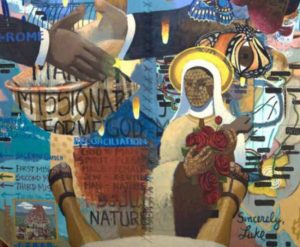I began meeting with Buddhist monks not long after my wife and I moved to Cambodia as missionaries in 2009. I was fascinated by these men who’d forsaken ordinary life in order to go about the streets barefoot, in saffron robes, collecting alms, pronouncing blessings, and officiating at ceremonies. I admired their dedication to simplicity, service, and meditation. I also figured that they were particularly qualified to teach me about the national religion of Cambodia—Theravada Buddhism. As a result, I made it a point to visit them at the local pagoda on a regular basis.
My conversations with the monks have consistently been positive, interesting and respectful. These men have taught me a great deal about their religion, and have even asked me to teach them about Christianity. I consider many of them friends.
Despite my attempts to clarify differences, in their minds Buddhism and Christianity are basically the same. As one lay Cambodian Buddhist put it to me, “Christianity is like bread, and Buddhism is like rice. They’re both good for you. The only difference is that in Asia we have the custom of eating rice, while in Europe and the United States you prefer bread.”
Bread and rice: I suspect this is an analogy that many Western proponents of inter-faith dialogue would be comfortable affirming. To begin with, it implies that Buddhism and Christianity belong in the same general category (i.e. religion). It also suggests that one religion or faith is more or less interchangeable with another; based on individual or cultural preferences. These are popular assumptions in the East and the West that give rise to a ‘live and let live’ sort of tolerance.
But the Cambodian Christians I know aren’t nearly so sympathetic. Instead of bread and rice, they prefer a different analogy—light and darkness. In fact, some of these brothers and sisters have been deeply distressed by the fact that I visit Buddhist monks. To them the pagoda is a den of demons. And Buddhism itself, rather than being one of the great world religions, is a web of lies that has ensnared their people for hundreds of years.
While I love and respect these Cambodian sisters and brothers, initially it was tempting for me to minimize their concerns. Not only did their views seem a bit extreme, but (I’m ashamed to admit) for a while I consoled myself with the thought that none of them had ever taken a single course on contextualization or comparative religion!
Later, however, I kept circling back to the same question: Is it possible that these Cambodian Christians understand something about Buddhism (and Christianity) that I don’t? Yes, I’ve studied Buddhism. But they’ve actually been Buddhists. Their experience surely brings with it a level of insight that can’t be acquired from a book, a class, or even from inter-faith dialogue.
Of course, inter-faith dialogue remains of critical importance. Our Buddhist, Hindu, Muslim, Sikh and Jewish friends have much to teach us. More than that, if we don’t understand their beliefs, values, hopes and fears, how will we ever make the Gospel intelligible to them?
At the same time, we must also listen carefully to Christian converts from these religions. They have much to teach us too. Their beliefs may grate against our sensibilities, or challenge our deeply-held assumptions. But, perhaps, that’s exactly the reason we ought to pay even greater attention to what they have to say.

